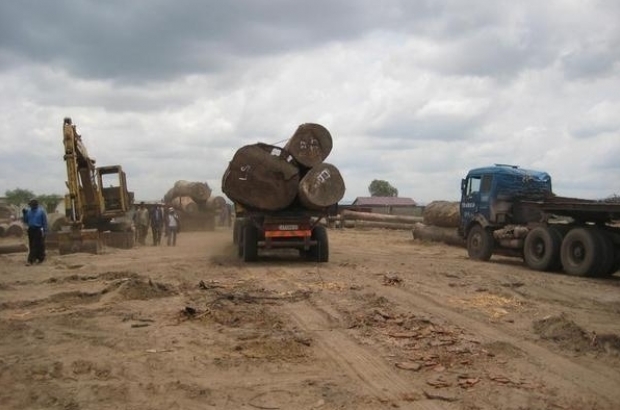- Daily & Weekly newsletters
- Buy & download The Bulletin
- Comment on our articles
Belgium 'places interests of illegal logging companies above forest protection in Congo'
Multinational companies are profiting from abusive forestry practices in the Democratic Republic of Congo, reports The New Straits Times. Illegal logging, mislabelled timber and false permits are widespread, according to several non-governmental organisations. The forests of the Congo basin in central Africa cover about 100 million hectares (almost 250 million acres) and are regarded as the second-largest green lung on the planet after the Amazon rainforest, but in DR Congo trees are being cut down with little regard for the law. Local and international NGOs charge that Congolese authorities are working with logging companies. In spite of tighter regulations recently adopted in Europe on imports of timber from Africa, it is almost impossible to verify the legality of tropical wood from DR Congo, according to the British-based non-profit organisation Resource Extraction Monitoring. Greenpeace Africa recently denounced the unloading at the Belgian port of Antwerp of a cargo of Afromosia (pericopsis elata), or African teak, which is a rare type of hardwood. “Belgium has placed the interests of logging companies above the protection of the forests of the Congo and the people who depend on them for their existence,” said Raoul Monsembula, the DR Congo national coordinator for Greenpeace Africa. Forty cubic metres of Afromosia were closely followed from origin to destination by several environmental activists.
These witnesses, who all asked to remain anonymous for fear of expulsion or losing their contracts, saw the hardwood transported via the DR Congo river port of Kinkole. “Upon visiting Kinkole port near Kinshasa, Greenpeace Africa witnessed log ends being removed and painted with new markings to hide illegal activities and to enable export,” the NGO said in a report. The wood was then placed on trucks to be transported to Matadi, the country’s sole seaport, where it was loaded onto a cargo ship bound for Belgium. In its report, Greenpeace named several suspect European companies and published photos of lorries carrying large, unregistered logs, along with wood that was completely unidentified despite regulations providing for each log from a single tree to be clearly marked with the same number.









